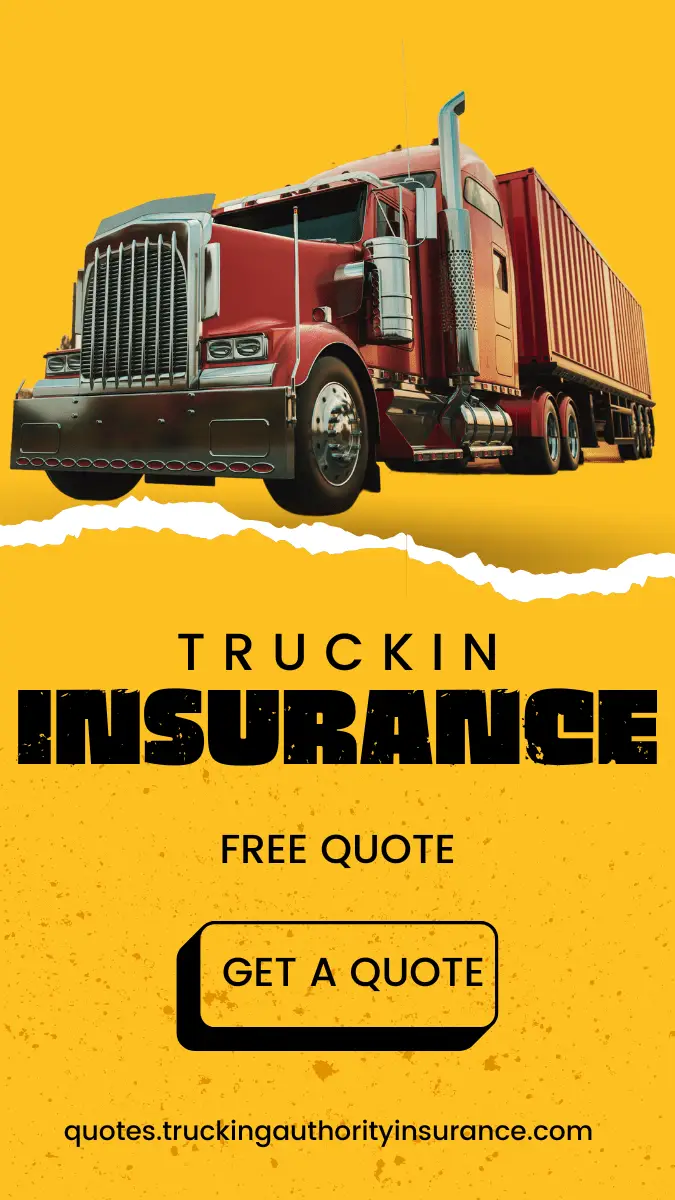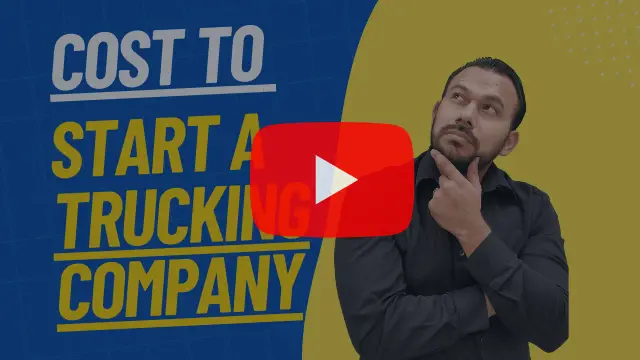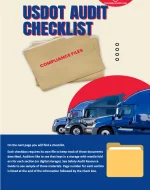Operating without the correct paperwork exposes drivers and carriers to serious risks. The penalties without proper trucking permits can include steep fines, costly delays, and even suspensions that disrupt your business. Each state sets its own limits, so a load that’s legal in one state may be a violation in another. Knowing and following permit rules helps protect your business and keeps your trucks moving.
Understanding Oversize and Overweight Permits for Trucking Operations
For trucking companies and owner-operators, understanding oversize and overweight permits is one of the most important parts of staying compliant on the road. These permits are legal documents that authorize a truck to operate beyond standard size or weight restrictions set by state law. Without them, carriers risk more than just fines.
They can face delays at weigh stations, vehicle impoundment, and higher liability if an accident occurs. Each state has its own process and thresholds, making it essential for carriers to know when a load requires permits and how to secure them before moving freight.
Oversize permits apply when trucks or loads exceed width, height, or length restrictions.
Overweight permits are required when the gross vehicle weight or axle weight is over the legal limit.
Permit conditions often include route restrictions, time windows, and safety requirements such as warning signs or escort vehicles.
Without these permits, violations can lead to assessed fines that increase per pound over the limit, as well as added liability in case of an accident. States use weigh stations and mobile enforcement to check trucks regularly. Compliance ensures that operations continue without costly interruptions.
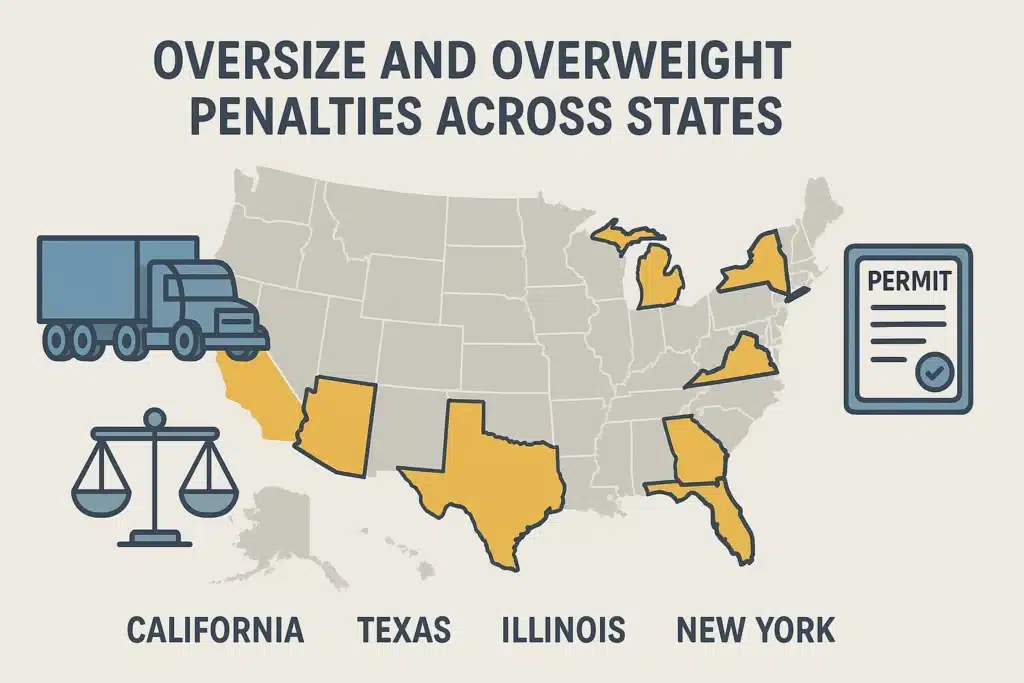
When Are Overweight Permits Required by State Law?
Each state has its own statutes defining what counts as an overweight load. Federal law sets the general maximum at 80,000 pounds gross vehicle weight, but axle weight and spacing rules vary.
You need an overweight permit when:
The total weight of tractor, trailer, and cargo exceeds the state’s legal limit
Axle or bridge weight restrictions are surpassed
Routes cross areas with posted weight limits or special conditions
Some states issue single-trip permits for unusual hauls, while others provide annual permits for recurring needs. Missing the proper paperwork can lead to limit fines, court costs, and enforced downtime while compliance is resolved.
Common Violations Faced by Small Carriers and Owner-Operators
Managing compliance is especially challenging for small carriers and owner-operators. Balancing freight schedules with state regulations can result in missed requirements.
Frequent violations include:
Operating overweight loads without permits
Allowing temporary or recurring permits to expire
Transporting oversize loads without required escorts or signage
Carrying incomplete or missing documentation
Consequences include:
Fines that may be assessed per pound of excess weight
Court costs and administrative surcharges
Ongoing inspections for flagged carriers
Suspension of authority if violations repeat
Because small carriers depend on consistent operations, even a short suspension or day of downtime can impact revenue. Organized recordkeeping and route-specific compliance planning reduce exposure to these risks.
Preventing Costly Mistakes: Compliance Strategies for New Entrants
The most effective way to prevent violations is preparation.
Best practices include:
Reviewing state rules before each trip
Applying for permits early to avoid last-minute delays
Keeping documentation ready for inspections
Building compliance checklists tailored to specific routes
Staying organized reduces downtime, protects revenue, and ensures smoother operations across state lines. Effective compliance planning also helps save money by reducing expenses from fines, downtime, and repeated violations.
State-by-State Overview: Fines for Unpermitted Oversize Loads
Every state enforces its own rules for oversize and overweight loads. While federal guidelines set a maximum gross vehicle weight of 80,000 pounds, the way states calculate penalties for unpermitted loads varies widely. Below are examples from five major trucking states.
California
Overweight fines typically start at about $20 for every 500 pounds over the legal limit, and costs escalate quickly. A load just a few thousand pounds overweight can result in fines of several hundred dollars, while heavier violations may cost thousands. Repeat offenses often lead to more frequent inspections.Texas
Uses a tiered fine system. The base fine may start around $100–$150, with additional charges per pound of excess weight. For significant violations, fines can exceed $5,000–$10,000. Given the volume of heavy freight, overweight checks are common on Texas highways.New York
Known for steep penalties, especially for repeat violations. Fines often begin at $100–$150 plus per-pound charges, and multiple violations on the same trip can compound. Carriers who frequently operate without permits face higher fines and increased enforcement scrutiny.Florida
Calculates fines per pound overweight, starting at about $10 per 200 pounds. Administrative surcharges are often added on top of the base fine. Overweight trucks without permits may be detained at weigh stations until compliance is proven, causing downtime.Illinois
Applies fines that increase with the amount of excess weight. Penalties start at $100–$150, then rise sharply with additional pounds over the legal limit. High enforcement is common around Chicago’s busy interstate corridors.
As these examples show, penalties differ dramatically across states. A violation that costs a few hundred dollars in one place may result in thousands elsewhere. Knowing the legal limit and securing the proper permits before crossing state lines is the most effective way to avoid fines, court costs, and costly delays.
Compliance Support and Services
While carriers can manage permits on their own, many choose professional support to reduce risk and save time. Truckers Authority assists with trucking permits, overweight permits, and authority packages. Our team helps carriers stay legal, manage renewals, and avoid costly delays.
If you want professional help handling state permits and compliance, contact us. Our experts guide you through the process, keep your paperwork in order, and help your business stay on the road without unexpected penalties.
